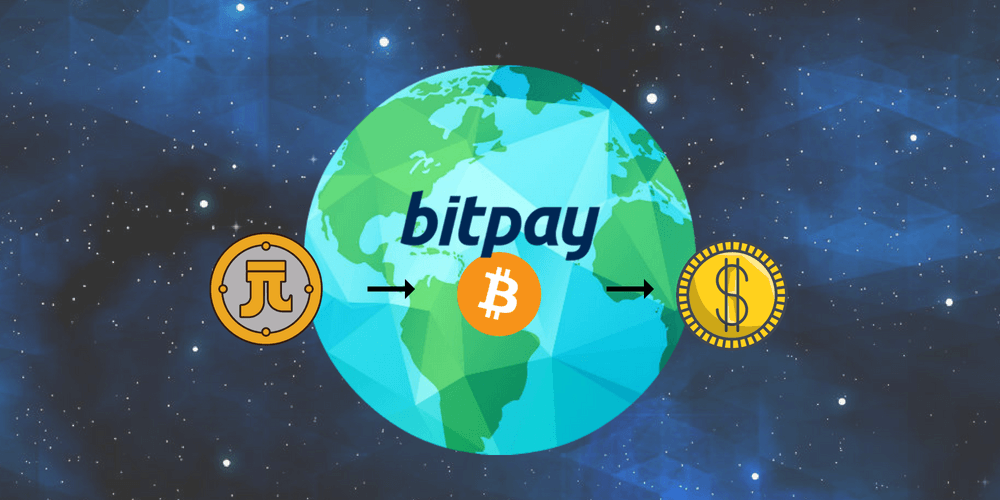
Bitcoin is electronic cash. And so the presumption is that we will use bitcoin like we use cash, only online. But BitPay and their partners are showing how Bitcoin’s next big use case might not be preordering your coffee, but enabling businesses to open up to global markets.
For companies looking to go global, Bitcoin can be a godsend. The hoops that have to be jumped through, the regulations, the banks, currency conversion, are greatly lessened through the use of Bitcoin.
Imagine a Chinese online shopper attempting to buy a digital item from someone in the United States. As the majority of Chinese shoppers don’t have credit cards and instead use debit cards that are linked to Chinese banks, this isn’t as easy as it may seem. A digital item should be a painless process to purchase online in any jurisdiction but ancient fiat banking system makes it anything but. First, the customer’s yuan would have to be transferred to dollars at a Chinese bank. Then the money would have to enter the SWIFT network through another bank. A few days or weeks later it would “arrive” at the corresponding SWIFT bank in the United States who would then, finally, transfer it to the seller’s bank.
And inside that process, there are at least two fees. A fee for converting yuan to US dollars and another for using the SWIFT network. Depending on the individual banks, more fees could be included, like an international purchase fee. All the while the merchant will have two choices: send the item right away and hope that the money actually arrives, or wait until the money arrives and risk losing the customer to a domestic seller who can deliver quicker. Granted, services like Paypal and its subsidiary Xoom simplify this process greatly, but not everyone uses it, not every Chinese bank works with Xoom and there can be delays that last days.
With Bitcoin, the customer simply sends Bitcoin, the Merchant gets it almost instantly (or up to an hour if the merchant wants to wait for blockchain confirmations) and then sends the item to the buyer. No mess, low fees.
On the face of it, that might not seem like a big deal. There probably aren’t that many people from the US selling digital products to Chinese customers, especially since there are massive differences in the popular social and gaming platforms between those two countries. But the above example was used for simplicity sake. There are lots of real companies that want to sell actual products in China but are prevented from doing so because of financial red tape.
In a recent blog post, Bitpay who processed $1.2B in payments last year laid out an example of how they are helping facilitate global trade through B2B transactions that would have been more difficult in traditional finance.
“Bellatorra CEO Nathan Halsey previously ran a skin-care company which operated for four years in China. They found roadblocks to growth – namely, they were only able to receive cash transactions from their clients due to cross-border currency exchange limitations. […] When a Chinese cosmetics distributor recently approached Halsey and his current company Bellatorra about using bitcoin to pay for a wholesale shipment, the game changed. Bellatorra and the Chinese wholesaler turned to [BitPay] to process the six-figure payment. […] Now Bellatorra is moving to use bitcoin in more transactions, with values processed via BitPay expected to grow by 10X in the near term.”
We spoke with Sonny Singh, CCO of Bitpay at Consensus 2018 to discuss B2B payments and he explained the financial benefits for businesses.
“We are allowing global customers to have their suppliers pay them in bitcoin because it’s cheaper and quicker than a bank wire. We can move from most places in the world in one business day for a 1% fee while international wires normally take around 3 days and cost 3%.”
And this is often the aspect of the crypto revolution that is often forgotten. As useful as crypto is for individuals and as exciting as the large financial institution’s potential involvements are, it is perhaps the medium-sized and small businesses that have the most to gain from cryptocurrencies. Multinational corporations have the connections and bankroll to make selling items overseas relatively easy and profitable. Individuals using Bitcoin for remittance is exciting if it is done en masse but getting users to switch has proven to be a long and gradual process.
Medium and small businesses have a lot to gain by using bitcoin in B2B transactions. Sure, using bitcoin as a payment option for regular customers has potential rewards, but like remittance, those rewards won’t be reaped until bitcoin hits the mainstream.
First, the fees make a lot more sense. With small transactions, bitcoin doesn’t always have that large of an advantage over traditional finance in terms of fees. With Lightning, that may change, but regardless it is hard to convince consumers to change monetary systems to save a few bucks on one item. The only way it works is if you convince thousands of customers to do it, and that has proven difficult. It is much easier to get one company to change their system for a few percentage points that can add up over time. Especially with resellers, where margins are small and the market is ultra competitive.
With the Bellatorra example, and the news that gold dealer Sharps Pixley is using BitPay to enable both gold to bitcoin and bitcoin to gold transactions, BitPay is showing how the bitcoin use case question might not be solved with the big financial giants or individual consumers, but the thousands of small and medium-sized businesses in the middle.

